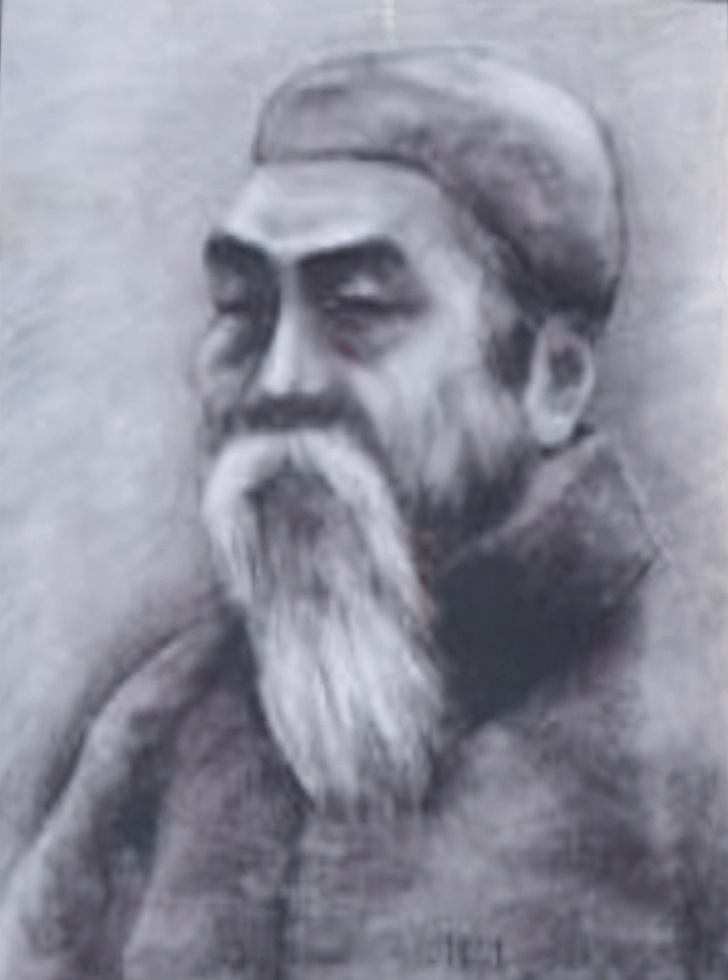In the early winter of 1910, Yuan Dahua, a 59-year-old inspector of Jiangxi, was transferred to Xinjiang as an aide to the huai army.
On October 10, 1911, the Wuchang Uprising of the Xinhai Revolution was successful, and all parts of the country responded, and in late November, 14 of the country's 24 provinces and autonomous regions declared themselves out of the Qing government. At this time, Yuan Dahua, the governor of Xinjiang, and the Ili general Guangfu were still under the orders of the Qing court.

Yuan Dahua, the last governor of Xinjiang
It should be noted that since Zuo Zongtang recovered Xinjiang and Liu Jintang became the first governor of Xinjiang, Xinjiang still retains the military setup of General Ili, after all, Xinjiang is too big, and Ili borders Czarist Russia, the strategic position is extremely important, and General Ili actually controls the northern Xinjiang region.
Soon after the Wuchang uprising, The Xinjiang revolutionary Liu Xianjun and others planned to instigate an uprising in Dihua, but they were later detected by Inspector Yuan Dahua, and Liu Xianjun and more than 80 others were killed.
In the summer of 1911, the 58-year-old Hangzhou general Zhirui, the cousin of The Guangxu Emperor's concubines Jinfei and Zhenfei, was ordered to exchange with the then Yili general Guangfu. According to the Qing court, the time limit for officials serving in Yili was eight months, but Zhirui traveled day and night, arriving in Ili, Xinjiang, in three months.
The last Ili general, ZhiRui
From The hangzhou flat tone of the northwestern border of Yili, which "has heaven on the top and Suzhou and Hangzhou on the bottom", has also behaved so positively that things will be abnormal.
Sure enough, after ZhiRui took over the military power of General Ili, he secretly put Guangfu under house arrest on the grounds that the situation in Ili was unstable.
Originally, when Zhi Rui took office through Dihua (present-day Urumqi), he conspired with the governor Yuan Dahua and others to decide to welcome the Xuantong Emperor to move west, or to build a capital in Altay, or in Kulun (present-day Outer Mongolia Ulaanbaatar), borrowing the protection of Tsarist Russia, and joining the feudal princes of the Mongolian, Gansu, and New ethnic groups to divide the northwest.
The stakes are high, and Zhirui is worried about Guangfu leaking secrets, and second, he has temporarily left this Ili general who has been operating in Xinjiang for twenty years, so he can prepare for emergencies, so he detains Guangfu.
When the Eight-Nation Alliance invaded Beijing, Empress Dowager Cixi fled to Shaanxi with the Guangxu Emperor for refuge, and it was reasonable to welcome Emperor Xuantong Puyi to Take refuge in Xinjiang.
Empress Dowager Cixi was on her way to escape
When the Hubei revolutionary government learned of this, it immediately sent a secret telegram from Russia to the Ili revolutionaries through Chen Qimei, the governor of Shanghai, informing the Ili general Zhirui that he had conspired with chang geng, the governor of Shaanxi and Gansu, and Yuan Dahua, the governor of Xinjiang, to move west in an attempt to take sides of the border, and this secret telegram accelerated the uprising of the Ili revolutionary party.
On January 7, 1912, the revolutionaries led by Yang Yixu successfully instigated an uprising in Ili and established the New Yidu Governor's Office, first electing Zhirui as the new Yidu Governor, Zhirui was entrusted by the emperor's order, resolutely refused to comply, and was shot by the revolutionaries. He was later promoted to the post of Governor of Guangfu (died of illness in 1913).
Ruins of the Ili General's Mansion
After Yuan Dahua learned of the Ili Uprising, he sent troops to attack on the one hand, and on the other hand, he asked Emperor Xuantong for a crusade. Confronted the rebels in the area of Guozigou, Along the Great River, Four Trees, and Jinghe River.
On December 25, Emperor Xuantong abdicated, Yuan Dahua resigned due to illness, and Beijing sent a telegram to comfort him. Yuan Dahua, a Manchu Qing widow, actually organized his forces and continued to attack Ili. Beijing telegraphed an armistice and peace, and Yuan Dahua used the excuse that the rebels had killed the commander and sent troops to suppress the Bali Kun Hui uprising and kill the resident officials. After Yuan Dahua personally went to Hami to supervise the battle, the revolutionary army attacked Dihua, and Yuan Dahua had no choice but to flee Xinjiang. On the way, he wrote a letter to a friend: "Geng Geng Dan's heart is clear, the Eastern Mountains are empty, the heavens are not old, the moon is always there, but Er can teach black and white." ”
The success of the Ili Xinhai Revolutionary Uprising and the defeat of Yuan Dahua's army fled Xinjiang, marking the end of the Qing court's forces in Xinjiang and completely breaking emperor Xuantong's "dream of moving west".
Puyi, emperor of xuantong at the end of the Qing Dynasty
After Yuan Dahua left Xinjiang, he lived in Tianjin. In the early 1930s, the "puppet state of Manchukuo" was established, and the Japanese Kwantung Army sent someone to invite him to Changchun, and Yuan Dahua replied, "One minister does not do two things." In the 24th year of the Republic of China (1935), Yuan Dahua died in Tianjin.